Research & Development Cell
“Research is to see what everybody else has seen and to think what nobody else has thought”
Research & Development Cell
The Research and Development (R&D) Cell of St. Aloysius College (Autonomous) is one of the endeavours to promote the quality of education and research among the faculty members and students. The College has a Research Committee to nurture research culture by promoting research in newly emerging and challenging frontier areas of Science, Social science, Commerce and to create awareness and opportunities in Research & Development among the faculties and Students. It enables an amiable atmosphere for scientific development and monitors the research activities of the college. The R&D Cell aims to achieve the Vision and Mission of the college and developing a scientific temper. The publication statistics, citations and obtaining patents are priorities of the cell. It undertakes various initiatives such us promoting faculty members for writing proposals to government and agencies for projects, conducting skill development programme for students based on innovation and building inter-disciplinary research activities.
Objectives
- To nurture research culture in the College by promoting research in newly emerging and challenging frontier areas of science, social science, commerce and humanities.
- To prepare and implement a research quality assurance mechanism for ensuring that all research activities of the college conform to standard quality specifications.
- To identify the requirement of budget and funding resources.
- To develop, prescribe and administer rules and procedures to ensure the compliance of all researchers to the research quality assurance framework, the research code and all the applicable rules and regulations.
- To create awareness and opportunities in Research & Development among the faculties and students.
- To create environment among the staff members to take up Research projects and improve their acquaintance, skills and credentials.
- To encourage staff members and students to publish research papers in National and reputed International Conferences/ Journals.
- To identify and inform faculty members, about the appropriate research opportunities announced by different academic, research, industry or government organisations
- To assist for applying the projects offered by agencies such as DRDO, DST, DBT, ICSSR, UGC, etc and getting funds for conducting Seminar/Workshop/FDP on research related issues and intellectual property rights.
- To identify and establish linkages including MOUs for long term relationships with national/international research organisations, industry bodies and individual companies for widening the scope of research opportunities and funding options available to the faculty members and students of the college to involve themselves in real life research projects and obtaining sponsorships.
Vision
To be the leading research-intensive institute in the development and advancement of national and international research and technology initiatives. To be leaders in the creation of a research environment for the advancement of socially relevant research that dominates the human race stage.
Mission
To enable excellence in research and innovation by providing infrastructure and training that promotes creativity and entrepreneurship and fostering a diverse and inclusive work environment. To ensure the optimal and effective use of intellectual, financial and physical resources to foster an environment of research excellence.
Composition and Members
Composition and members of the R&D Centre
- Chairperson and Head of the Institution : Dr. Fr. J. Ben Anton Rose
- Members:
- Kallol Das (Vice Principal)
- Siby Samuel (Head, Department of Computer Science)
- Neelanjana Pathak (Head, Department of English)
- Rupali Ahluwalia (Head, Department of Commerce)
- Sonali Nigam (Head, Department of Botany & Microbiology)
- Reeta Chouhan (Head, Dept. of Economics)
- Nominees from Industrialists:
- Narendra Somaiya (Steelace Industries)
- Pradeep Kumar Chadha (Ankita Track ways Pvt. Ltd.)
- Nominees from Students:
- D.M Shreya (PG Students, Department of Biotechnology)
- Shraddha Choudhary (PG Students, Social Science)
- Secretary:
Dr. Sweta Likhitkar (Department of Chemistry)
- Working committee members
Dr. Durga Ray
Dr. Anisha Rupashree
Dr. Daya Shankar Gautam
Dr. Poonam Pendke
Research Policy
The significant factors indicating potential growth in the research activities includes the enhancement in the research publications in peer reviewed journals, research Projects/ grants, patents, collaborations, doctoral program and faculty development program. To encourage these activities, research & development cell of the college propose policies in the following categories:
Academic and Sponsored Research
- All eligible faculty members should be register as Ph.D. Supervisor in the state or central University.
- Faculty of each department shall conduct research in focused areas identified by state/central government in addition to research areas preferred by the faculty.
- Research publications of Faculty members in either WEB of science or SCOPUS indexed journals are appreciated with appropriate incentives.
- Before submission of any publication and research paper, must clear plagiarism checking.
- As per the UGC approved API norms the College fixed the number of articles to be published by faculty of diverse areas.
- Internship or project work of Post Graduate students should be focussed on research. Every internship/project shall lead to at least one research publication in a UGC Care Journals.
- Every doctorate faculty member are encouraged to apply for a government funded project or they can apply for internal project with an aim to apply for external funding. To initiate the project there is a provision for providing seed money.
- The College shall provide the infrastructure required to conduct the funded research.
- All departments shall make every effort for recognition by National/International agencies through schemes/funding such as DST, DBT, UGC, ICSSR etc.
- Faculty members are encouraged to identify inter-disciplinary research in their chosen field of research.
- The departments of the college shall tie-up with industries and corporate bodies to undertake funded research in emerging areas and industry relevant areas.
- All innovative projects of faculty members are assigned for filing patents on successful completion
- All research conducted shall be covered by IPR and copyright laws.
Extension and Extramural Research
- The faculty members of the college are encouraged to select society specific problems and conduct research and provide feasible solutions. Such research topics could include problems related to chronic diseases, women and child welfare and protection and health care etc.
- The college shall organise educational programmes relevant to a community and society, inside or outside of the campus.
- The college faculty shall visit at least one village in the nearby area, investigate the problems and try to find solutions.
- Students are encouraged to participate in the extension and outreach programmes organised by the college.
- The college shall conduct programmes aimed to develop trade skills among the students.
- Eminent and enterprising professionals from the industry are invited to take up joint resource projects with the college faculty.
- The faculties of the college are encouraged to be a resource person in the events such as seminars, training programs, workshops and conferences conducted by other institutions.
Central Instrumentation Lab
- The college has well established Central Instrumentation Centre, which is utilized by faculty members and Ph.D. scholars of all the departments for their research work.
- The instrumentation facility is also available for other institutes and colleges.
- The research scholar can utilize the lab and instrumentation facilities for their practical work, registered under guide of another university with the referral of one of the institutional member.
Consultancy
The objective of Consultancy Policy is to promote academic, industry and research interaction and to encourage and facilitate faculty to provide knowledge inputs sought by industry, government agencies or other academic / research organizations. Consultancy is well recognized as an effective way for universities to disseminate knowledge and make an early and direct impact on society. However, the balance between consultancy and the traditional roles of the academic staff needs to be managed and the interests of the College must be protected. This Policy provides provisions for conducting consultancy to ensure that consultancies undertaken by Faculty members are consistent with the strategic and operational objectives of the College and the costs are sustainable.
Intellectual Property Rights
- Identifying and creating IP and bringing research results to the next stage of development have become institutional objectives. In this context, an institutional IP policy is a prerequisite for successful collaboration between academia and commercialization partners. An IP policy provides structure, predictability, and a beneficial environment in which enterprise and researchers can access and share knowledge, technology and IP.
- The College has an Incubation centre, for the development of innovation culture by organising various kinds of programs such as ideation programs, collection of innovations from research undertaken in respect of academic, extension, extramural and outreach.
- Every major invention achieved out of conducting research shall be innovated and the same shall be incubated in the incubation centre which will be augmented from time to time.
- Students shall be allowed to select an incubated product and use the same to be developed in large scale through separately established start-up.
- All the training required for the students to become entrepreneurs shall be imparted
- The College shall incorporate an incubation centre that has all the facilities for incubating the innovations
- Every innovation shall lead to filing a Patent
- The college shall provide required support to the faculty for filing IPRs, patents and copyrights when it has been proved by the faculty that such a filing is necessary to protect the value of the research done.
Plagiarism
- The definition of plagiarism has been defined in Section 2 (k) of UGC Act 1956, the regulation as, “…an act of academic dishonesty and a breach of ethics. It involves using someone else’s work as one’s own. It also includes data plagiarism and self-plagiarism.”
Self-Plagiarism
Self-Plagiarism means that using your own previous work without adequately citing it has also been brought within the ambit of the definition. This idea may appear counterintuitive to the very soul of plagiarism which is stealing someone else’s work but it is important to understand that representing old work as new work is stealing from yourself. It also defeats the purpose of research papers which is to present original work and the integrity of the work is marred. Most publishers will not allow for self-plagiarism as there is no differentiation made between your published work and other people’s published work. One of the most important facets to consider is that the copyright for published works are usually held by the journal rather than the author and plagiarizing from your own work would mean the violation of such copyright.
Exemptions
Certain content will be exempted from the charge of plagiarism even though they are reproductions of other works. The said exemptions are as follow:
- Quoted work which is either in the public domain or has been attributed adequately or permission has been granted for its use.
- All references, table of content, preface, acknowledgement, and bibliography are exempted.
- Similar content which is minor.
- Standard equations and symbols, laws and generic terms.
Tolerance of Plagiarism
Tolerance of plagiarism has been divided into two part:
- Zero-tolerance areas: This means that plagiarism of any degree will not be tolerated. Zero tolerance is restricted to core areas. Core areas are the hypothesis, the recommendations, the abstract, the summary, the conclusion, the results and the observations.
- Tolerance areas: Plagiarism in all areas but the core areas is tolerable to a certain extent. The various levels of plagiarism have been quantified and given below;
- Up to 10%- Excluded
- Between 10% and 40%- Level 1
- Between 40% and 60%- Level 2
- Above 60%- Level 3
Reporting of Plagiarism and Procedure to be Followed
In case plagiarism is suspected and there is proof of such, any member of the teaching staff may approach the relevant institution after which the institution will refer it to the Academic Misconduct Panel (AMP). The AMP is to be set up by all higher educational institutes (HEIs) in order to investigate and submit a report. After the AMP has thoroughly investigated the situation, they will make a report to the Plagiarism Disciplinary Authority (PDA), preferably within a period of 45 days. The PDA is to be formed by the HEI and their job is to take appropriate decision after consideration of both the recommendations of the AMP as well as the hearing of the accused. Their decision will be final and binding.
Penalties for the Act of Plagiarism
The various penalties for plagiarism have been provided in Section 13 of the UGC guidelines. Different penalties have been given for different tiers of plagiarism severity. Section 13 provides that penalties shall be awarded only when there is no doubt that the accused has committed the act and after all other avenues of appeal have been exhausted. The accused must also be given adequate opportunity to defend himself/herself. Further, the proceedings are to be held in camera, meaning that proceedings are to be closed to the public. The penalties given should be in proportion to the severity of plagiarism.
Penalties for Students
Penalties will be given to students according to the decision of the Plagiarism Disciplinary Authority (PDA). The punishments given to students for plagiarism for different levels of severity are given below:
- Level 1 (10%-40%)– the student will not be given any mark or credit and revised script must be resubmitted within a stipulated time period which does not exceed 6 months.
- Level 2 (40%-60%)– the student will not be given any mark or credit and the revised script is to be resubmitted between 1 year and 18 months.
- Level 3 (above 60%)– the student will not be given any mark or credit and their registration for that course will be cancelled.
If a student repeats such act of plagiarism then the punishment will be for the next level to the one previously committed. In cases where the highest level of plagiarisation occurs then the punishment remains the same and the registration will be cancelled.
If degree or credit has already been obtained and the accused has been proven to have plagiarized content then said degree or credit will be suspended for a stipulated time period.
Penalties for Faculty, Staff or Researcher
Penalties for faculty, staff or researcher of Higher Education Institutes will also be given according to the severity of plagiarism.
- Level 1 (10%-40%)– he/she will be asked to withdraw the manuscript submitted for publication and will not be allowed to publish any work for a minimum time period of 1 year.
- Level 2 (40%-60%)– he/she will be asked to withdraw manuscript submitted for publication and will not be allowed to publish their work for a minimum time period of 2 years. He/she will also be denied any annual increment that they have been receiving; he/she will also not be allowed to act as a supervisor for students or scholars for 2 years.
- Level 3 (above 60%)– he/she will be asked to withdraw manuscript submitted for publication and will not be allowed to publish any work for a minimum time period of 3 years. He/she will also be denied any annual increment they are receiving for 2 years, he/she will not be allowed to act as a supervisor for students or scholars for a period of 3 years.
If a person repeats the same act of plagiarisation then he/she will be subject to punishment of the next level from the level which the person was previously punished for. If Level 3 plagiarism is repeated than the person committing it will be dismissed from their job.
If a person has already attained any benefit or credit before plagiarism was proved then such benefit or credit will be suspended for a time period that is to be decided by the AMP and PDA.
The following guidelines are framed for implementing the Anti-Plagiarism policy of the college which shall be made applicable to the research papers submitted for the publication and dissertation thesis of post graduate studies.
- The college shall not tolerate plagiarism in any manner and for this purpose; accepted limit shall be zero per cent.
- The project/research supervisor and head of the department shall be responsible for creating awareness among the candidates falling under the purview of these policy guidelines on the consequences of plagiarism in the research reports submitted to the college.
- Research & Development Centre shall conduct an awareness lectures on the consequences of plagiarism at least once in a year.
- If any Plagiarism has brought to the notice, shall be investigated in detail by the committee of experts.
References
- India creates unique tiered system to punish plagiarism (https://www.sciencemag.org/news/2018/04/india-creates-unique-tiered-system-punish-plagiarism)
- UGC drafted strict regulations on plagiarism by teachers, students (https://www.indiatoday.in/education-today/news/story/ugc-drafted-strict-regulations-on-plagiarism-by-teachers-students-1203761-2018-04-03)
- https://www.kluniversity.in/pdfs/Policy-for-Research-Promotion.pdf
Events Undertaken
2021-2022
National Webinar on “Intellectual Property Rights: Patents and Design Process”
Online PG Students’ Research Paper Presentation Series (Physical Sciences ,Life Sciences, Social Sciences and Commerce)
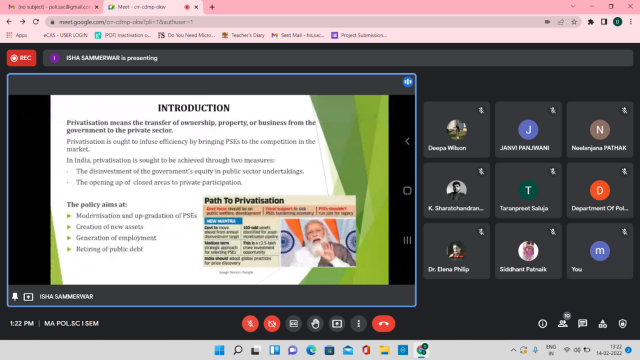
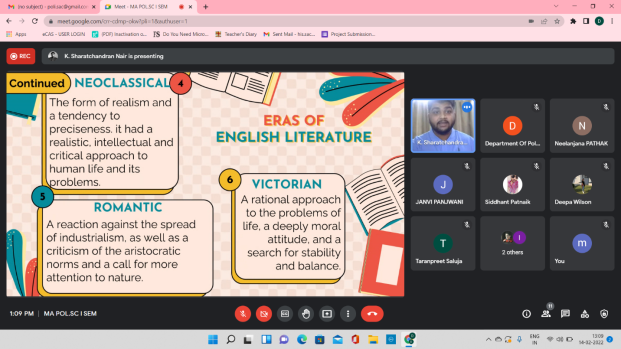
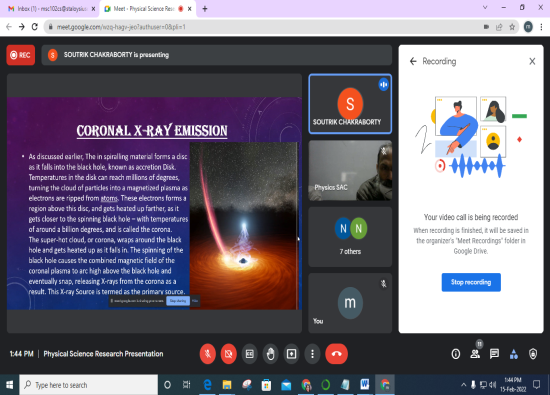
Valuation of Research papers and projects
2020-2021
National Training Program on IPR & Patenting
Faculty Training Program
Valuation of Research papers and projects
Publication Record
Staff Publications:
| Year | No. of Research publications | No. of patents Filed | No. of Chapters in the book | No. of self authored books | No. of Edited books |
| 2018-19 | 93 | – | 22 | – | – |
| 2019-20 | 56 | 2 | 61 | 1 | 4 |
| 2020-21 | 64 | – | 47 | 1 | 4 |
MoU
- MOU has been signed with AVENTURA Company Mumbai and DIC, for working on the project of less water IRRIGATION on 14 May, 2022
- MOU has been signed with Jabalpur Incubation Center on 19 Dec, 2019 for further processing of prototypes developed under certificate course organized by DIC.
- MOU has been signed with Gary I. Lilinthal, Professor, Tashkent state university of Law, Uzbekistan in February 2021 for transferring a technology for research expertise, in the field of international research scholarly publications.
- MOU has been signed with Jawaharlal Nehru Krishi Vishwvidyalaya under the scheme “Agripreneurship Orientation Programme” for encouraging the start-up of selected prototype.
Code of Ethics
- The College has a policy on all kinds of Research Misconduct such as invention, falsification, plagiarism, or other serious divergence from accepted practices in proposing, carrying out, or reporting results from research; Scholars/faculty should ensure that they have written and submitted only entirely novel works, and if they have used the work and/or words of others, that this has been appropriately cited. Publications that have been influential in determining the nature of the work reported in the thesis/research paper should also be cited. Plagiarism takes many forms, from “passing off” another’s paper as the author’s own, to copying or paraphrasing substantial parts of another’s paper (without acknowledgement), to claiming results from research conducted by others. Plagiarism in all its forms constitutes unethical publishing practice and deserves condemnation.
- All experiments protocol involving the use of animals constituted as per the article no. 13 of the CPCSEA (Committee for the Purpose of Control and Supervision of Experiments on Animals, http://cpcsea.nic.in) rules, laid down by Government of India.
- The Research/Ethics committee is constituted for handling hazardous microorganisms. The committee provides recommendations to the intramural community in matters pertaining to the control of biohazards associated with the use of microbiological agents and their vectors. It also represents the interests of the surrounding community with respect to public health and protection of the environment.
- The constitution, composition, role and, functions, information for compliance requirements, processes are followed while dealing with hazardous microorganisms, thereof in line with Rules 1989.
- Any hazardous waste generated on campus must be managed and disposed of under the criteria and procedure outlined in the Hazardous Wastes (Management and Handling) Rules, 1989, published under the notification of the Ministry of Environment and Forests, Government of India, under the provisions of the Environment (Protection) Act, 1986.
List of Research Guides
List of Research Guides
| No | Name Of Research Guides | Discipline | Affiliation | Year Of Recognition As Guide | No. Of Scholars Register | No. Of Scholars Awarded | |
| 1 | Dr. Fr. G. Vazhan Arasu | Economics | Rani Durgavati Vishwavidyalaya Jabalpur (M.P) |
2014 |
1 | 3 | |
| 2 | Dr. Kallol Das | Physics | Rani Durgavati Vishwavidyalaya Jabalpur (M.P) | 2004 | 2 | 7
|
|
| 3 | Dr. Caroline Saini | Hindi | Rani Durgavati Vishwavidyalaya Jabalpur (M.P) | 2012 | 6 | 2
|
|
| 4 | Dr.Neelanjana
Pathak |
English | Rani Durgavati Vishwavidyalaya Jabalpur (M.P) | 2012 | – | 7 | |
| 5 | Dr.Anjali D’souza | Chemistry | Rani Durgavati Vishwavidyalaya Jabalpur (M.P) | 2014 | 2 | 2 | |
| 6 | Dr. Abhilasha Shukla | Hindi | Rani Durgavati Vishwavidyalaya Jabalpur (M.P) | 2014 | 2 | 7 | |
| 7 | Dr. Sutapa Roy | Chemistry | Rani Durgavati Vishwavidyalaya Jabalpur (M.P) | 2014 | 3 | – | |
| 8 | Dr. Vishwash Patel | Political Science | Rani Durgavati Vishwavidyalaya Jabalpur (M.P) | 2017 | 4 | – | |
| 9 | Dr, Mita Darbari | Mathematics | Rani Durgavati Vishwavidyalaya Jabalpur (M.P) | 2019 | 4 | – | |
| 10 | Dr. Mandira Kar | Mathematics | Rani Durgavati Vishwavidyalaya Jabalpur (M.P) | 2019 | – | – | |
| 11 | Dr. Manju Maria Soloman | History | Rani Durgavati Vishwavidyalaya Jabalpur (M.P) | 2019 | 2 | ||
| 12 | Dr.Laxmi Kant Pandey | Biotechnology | Amity University Raipur Chhattisgarh |
2020 |
9 | ||
| 13 | Dr. Akhilesh Pathak | Mathematics | Rani Durgavati Vishwavidyalaya Jabalpur (M.P) |
2020 |
– |
– | |
| 14 | Dr. Smarika Lawrance | Chemistry | Rani Durgavati Vishwavidyalaya Jabalpur (M.P) |
2021 |
2 | – | |
| 15 | Dr. Sweta
Likhitkar |
Chemistry | Rani Durgavati Vishwavidyalaya Jabalpur (M.P) |
2021 |
2 |
– |
|
| 16 | Dr.Parmod Chaitany | Physics | Rani Durgavati Vishwavidyalaya Jabalpur (M.P) | 2022 | – | – | |
| 17 | Dr. NishaPandey | Physics | Rani Durgavati Vishwavidyalaya Jabalpur (M.P) | 2022 | – | – | |
| 18 | Dr. Tarvindar Kaur Kainth | Commerce | Rani Durgavati Vishwavidyalaya Jabalpur (M.P) | 2023 | – | – | |
| 19 | Dr. Rupali Ahluwalia | Commerce | Rani Durgavati Vishwavidyalaya Jabalpur (M.P) |
2023 |
– | – | |
| 20 | Dr. Sona L Rai | Commerce | Rani Durgavati Vishwavidyalaya Jabalpur (M.P) |
2023 |
– | – | |
| 21 | Dr. Preeti Jain | Commerce | Rani Durgavati Vishwavidyalaya Jabalpur (M.P) |
2023 |
– | – | |
| 22 | Dr. Sanjay Rajak | Commerce | Rani Durgavati Vishwavidyalaya Jabalpur (M.P) |
2023 |
– | – | |
Instruments in CIL
Ultraviolet- Visible Spectrophotometer
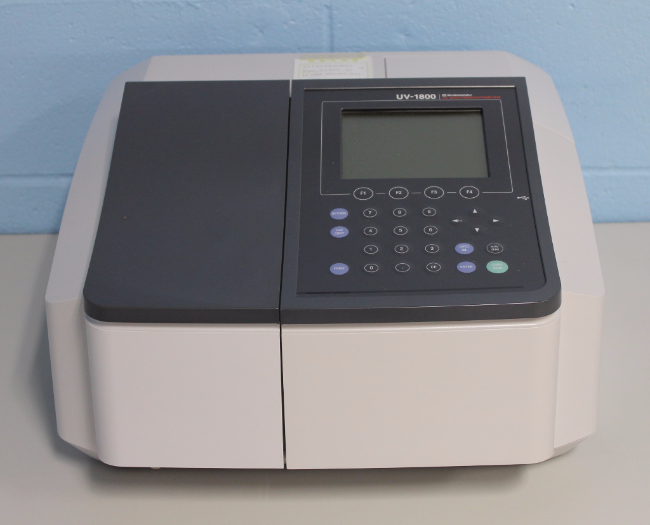
- Used to find out the amount of given compound in the sample
- Used to check the purity of the compound/drugs in pharma companies
- Used in pathology labs.
Fourier Transform-Infrared (Diffuse Reflectance) Spectrophotometer
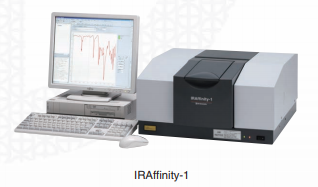
- Give an idea about the nature (functional group) of the compound
- Used for quantitative and qualitative analysis
- Used to study the changes in the nature of the compound after the reaction or use
- Used in the field of nano particals
Fluorescent Microscope
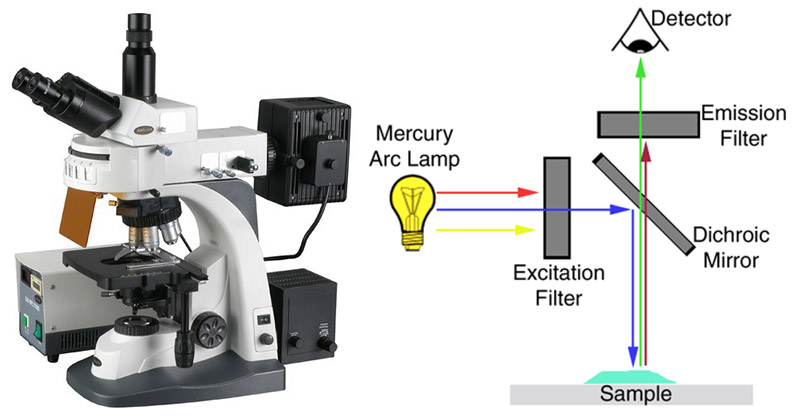
- Image specific features of small specimens such as microbes
- Structural changes in Fluorescent nucleotide
- Chromosomal studies in different stages
- Nanoparticle behavior in various object
X-Ray Diffraction
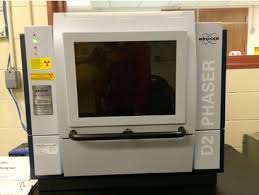
- Crystallographic Studies of Specimen.
- Measurement of strain and small grain size.
Atomic absorption spectrophotometer
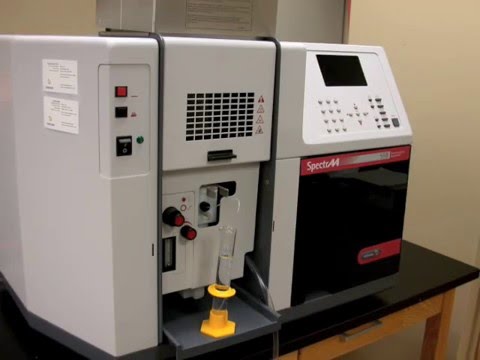
- Useful for metal analysis
- Detection of heavy metal degradation
- Presence of a particular metal concentration in solution
3-D Printer
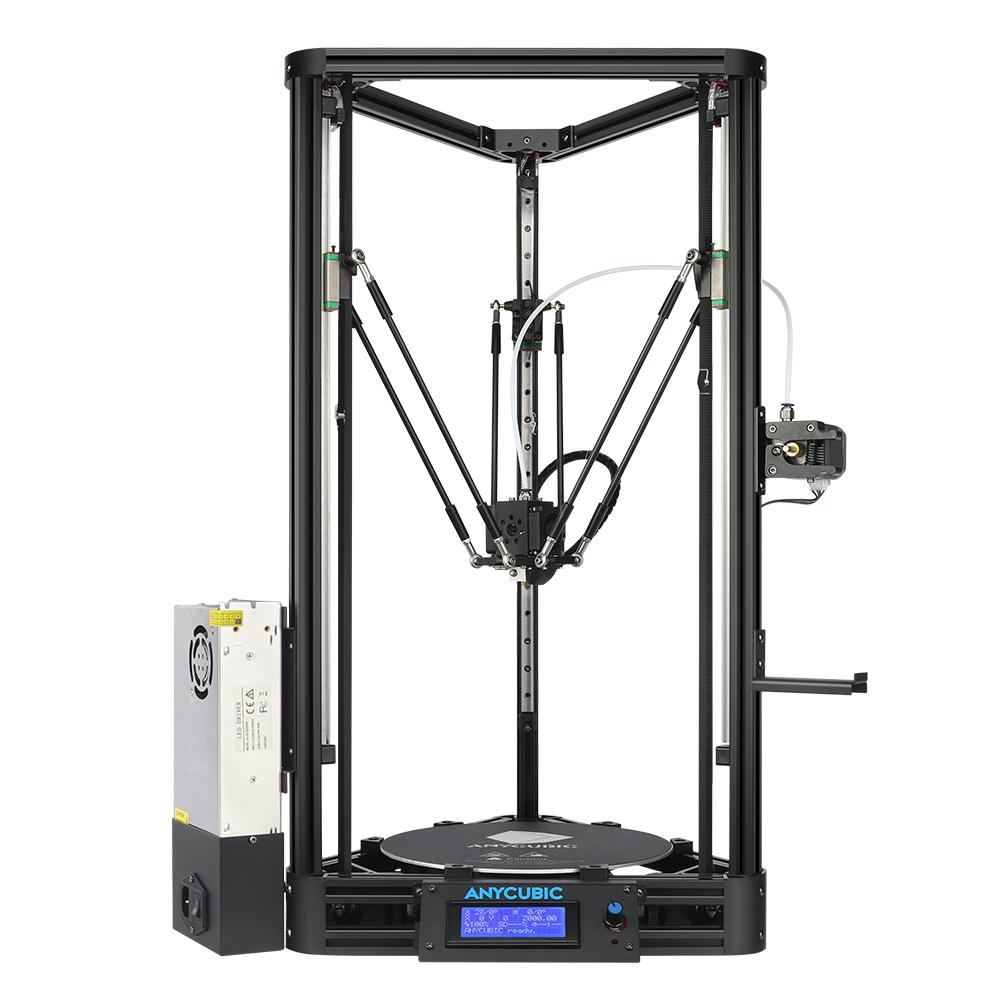 Used to prepare models
Used to prepare models- Preparation of study material
- Prototyping and Manufacturing
Atomic Force Microscopy
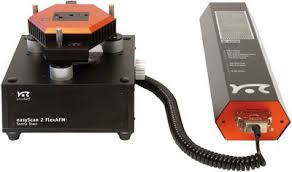
- The imaging of almost any type of surface
- Study of Surface morphology
Biochemical Analyzer
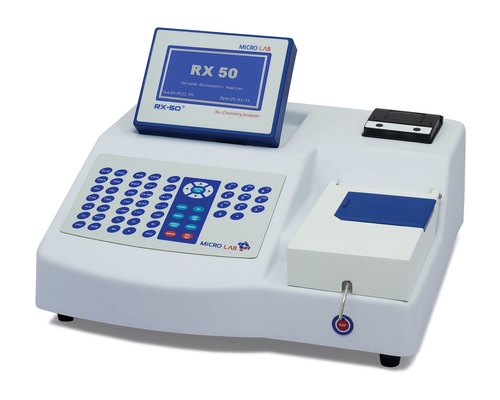
- For electrolytes, therapeutic drugs and drug-enzyme investigations.
- Capable of performing various tests
Research Facilities
Enquiry Form Regarding Research Analysis
https://forms.gle/L42c4Tvjng93HDfy7
Sample Analysis:
Laboratory Work:
- Funding Agency
